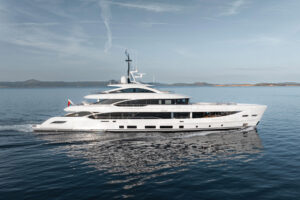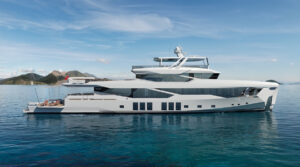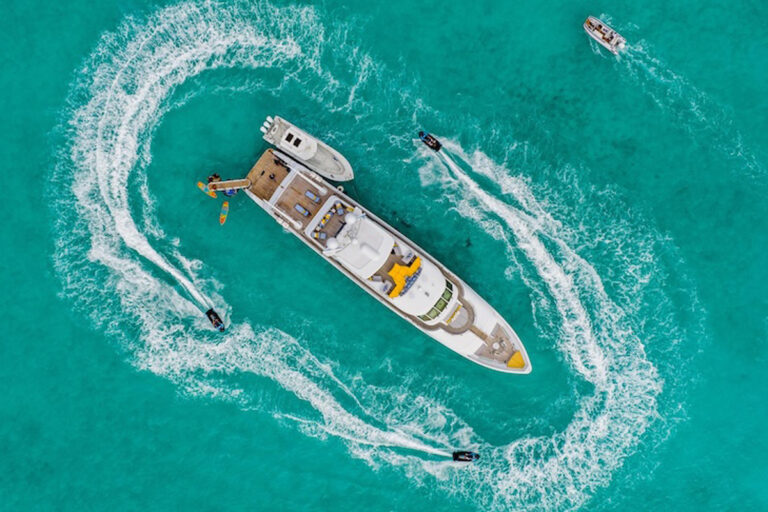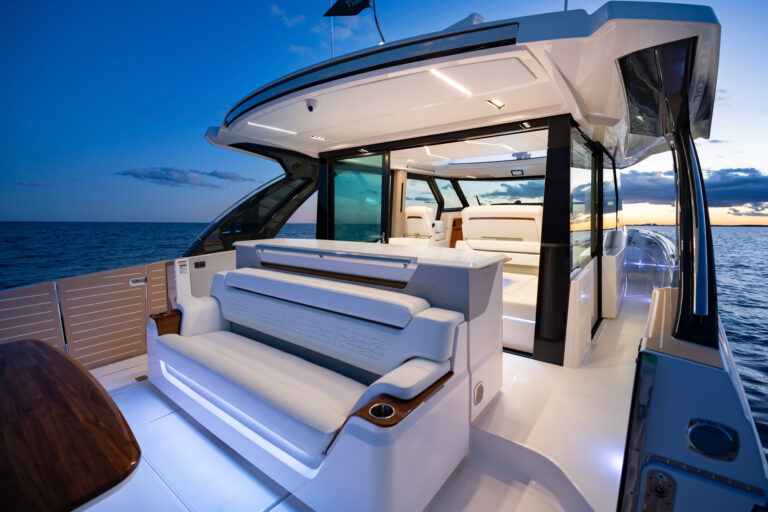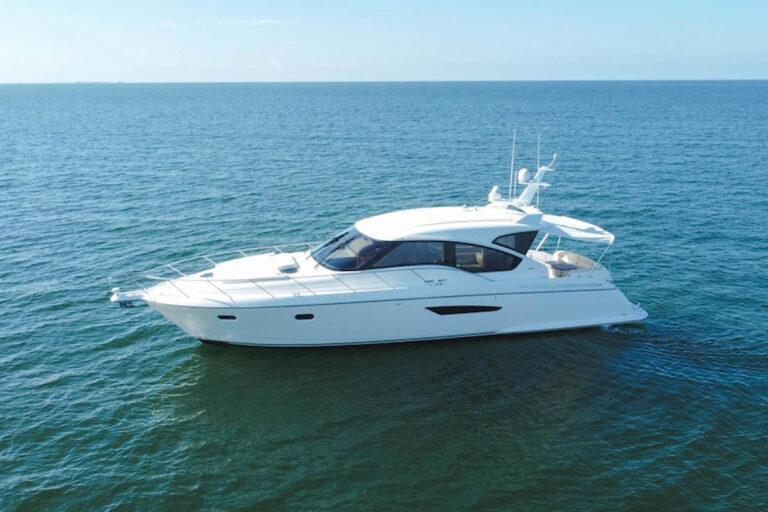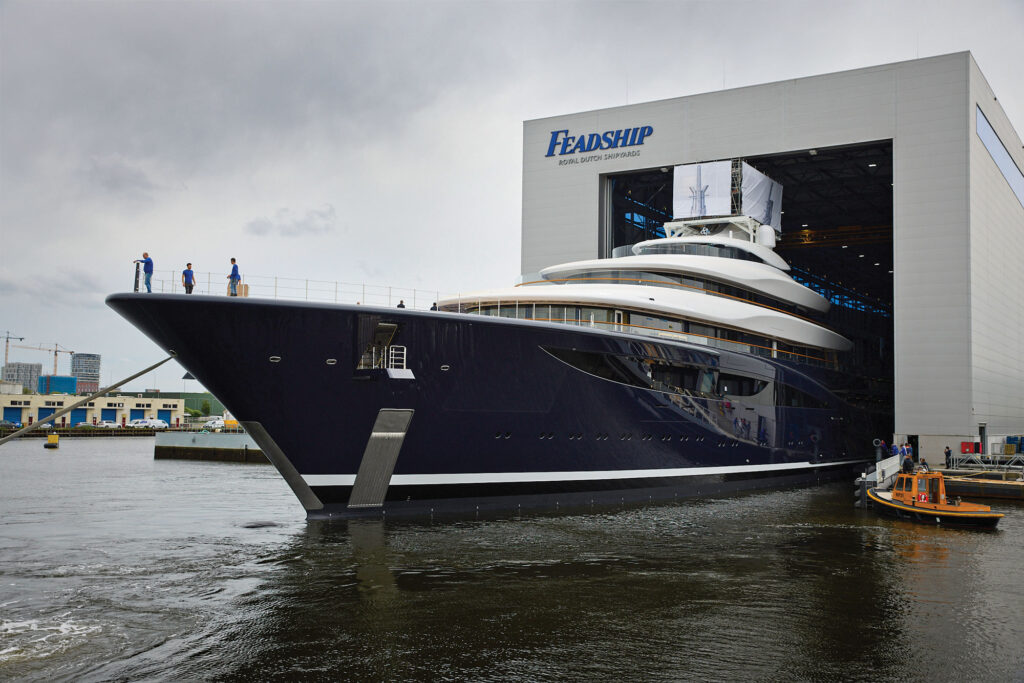
How do you store compressed liquid hydrogen on a superyacht at the equivalent of minus-423 degrees Fahrenheit?
This was the toughest question Dutch builder Feadship faced as it set out to create Project 821, the world’s first hydrogen-cell superyacht. “The aim has been to develop a new, clean technology not just for this project, but for the world,” says Jan-Bart Verkuyl, Feadship director and CEO at Royal Van Lent Shipyard.
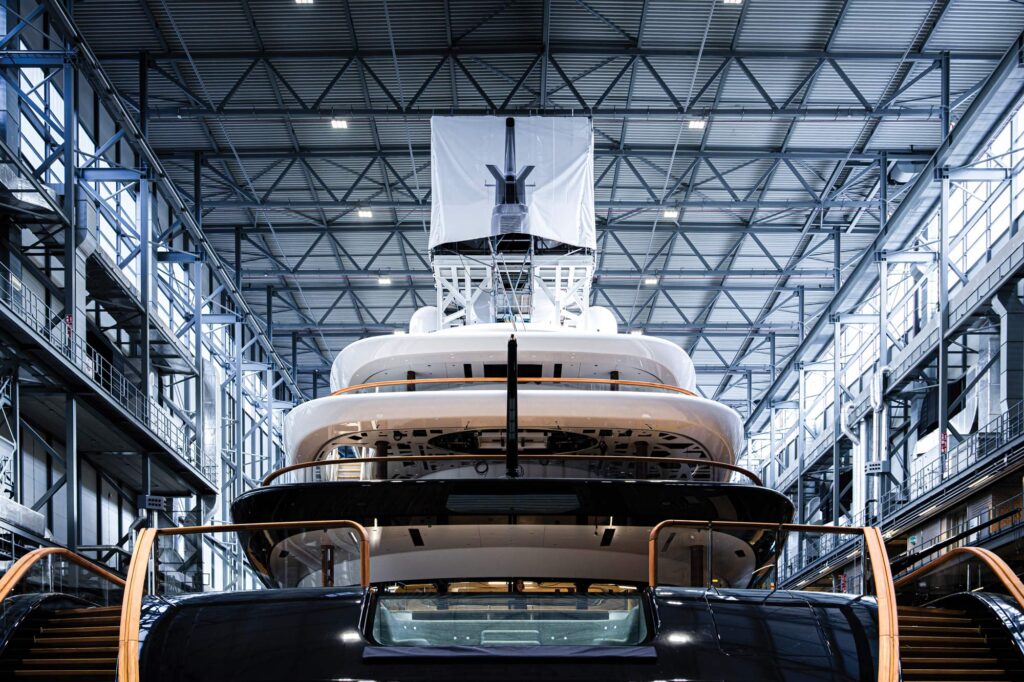
Hydrogen fuel cells offer great promise for combustion-free cruising, with only electricity and water as their byproducts. But unlike with vehicles and spacecraft, the technology is new to recreational yachts. Weight isn’t the problem because hydrogen is light, but safely storing it on a vessel requires a double-walled cryogenic tank in a dedicated room. According to Feadship, it takes eight to 10 times more space to store hydrogen than the energy equivalent in diesel fuel.
Project 821’s size, at 390 feet long, made it a good candidate to test the technology. The tank on board holds about 4 tons of hydrogen, with the system able to provide a week’s worth of silent operation at anchor, or navigating at 10 knots while leaving harbors or cruising in protected marine zones.
All of that was achieved in addition to the kind of luxury that Feadship clients demand. The yacht’s design is by RWD, with owner representation by Edmiston. It has the most hull openings of any Feadship to date, with 14 balconies. Guest amenities include an elevator and a library.
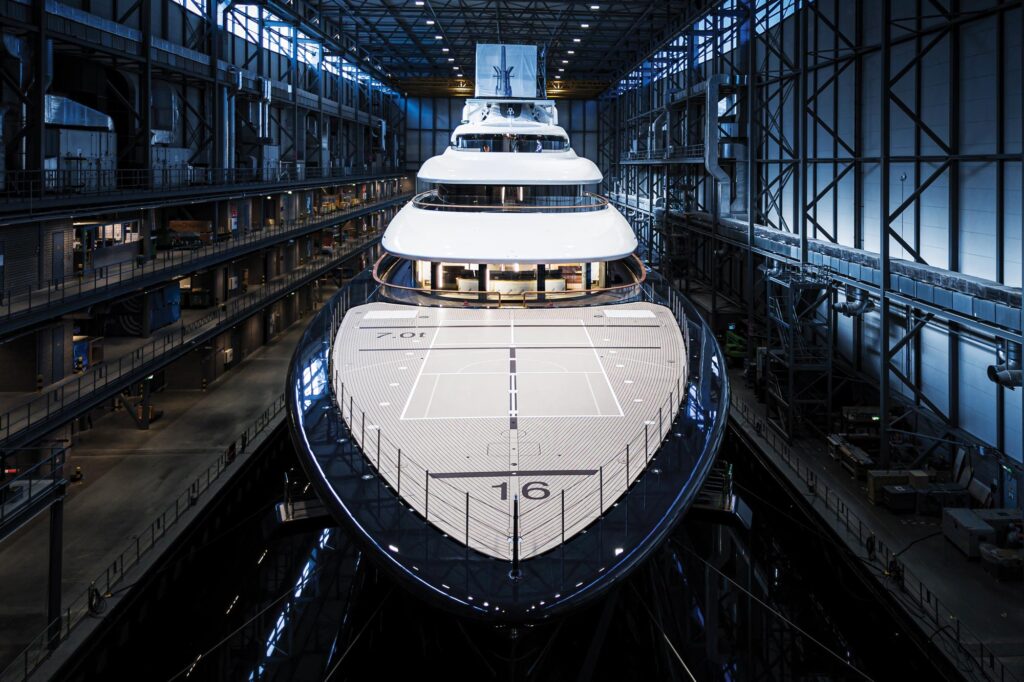
“We have now shown that cryogenic storage of liquefied hydrogen in the interior of a superyacht is a viable solution,” Verkuyl says. “Future innovations on fuel cells and onboard reforming of methanol to hydrogen are on the near horizon.”
New Horizons
There were no regulations for hydrogen storage and fuel-cell systems on a superyacht, so Feadship, along with Edmiston and Lloyd’s Register, developed appropriately scaled equipment, protocols and safety regulations as part of the build.
Record-Setter
Project 821 is also the largest motoryacht ever launched in the Netherlands. It is about the same length as Feadship’s Launchpad, but with 30 percent more volume.


